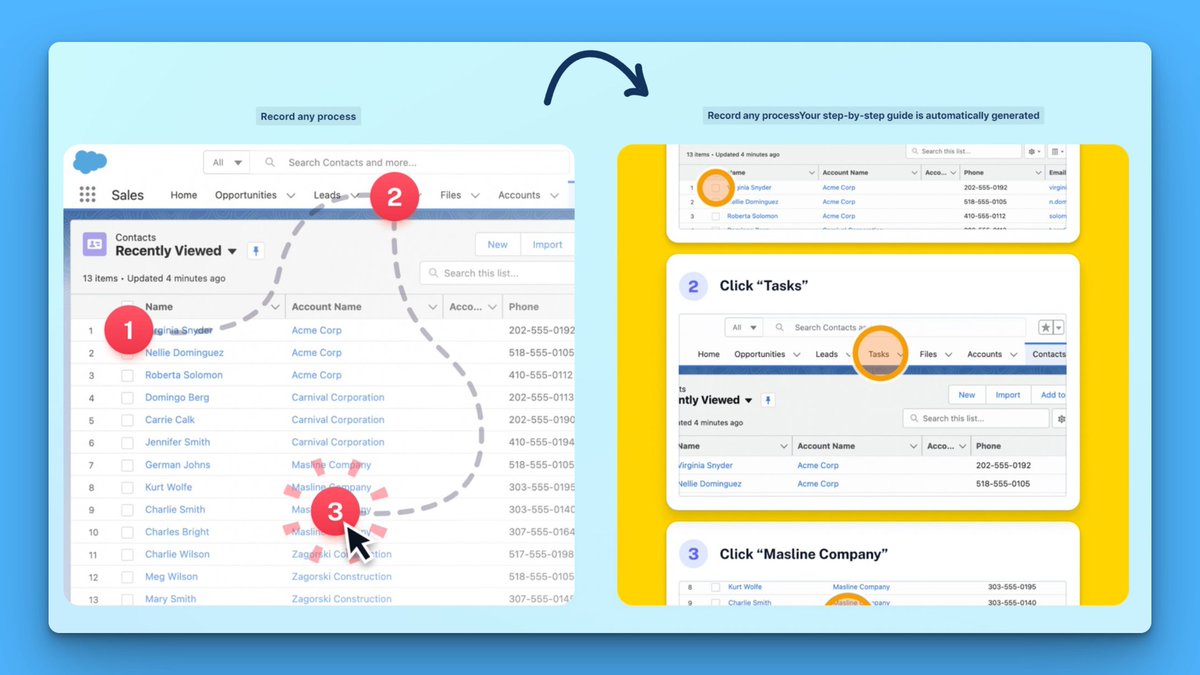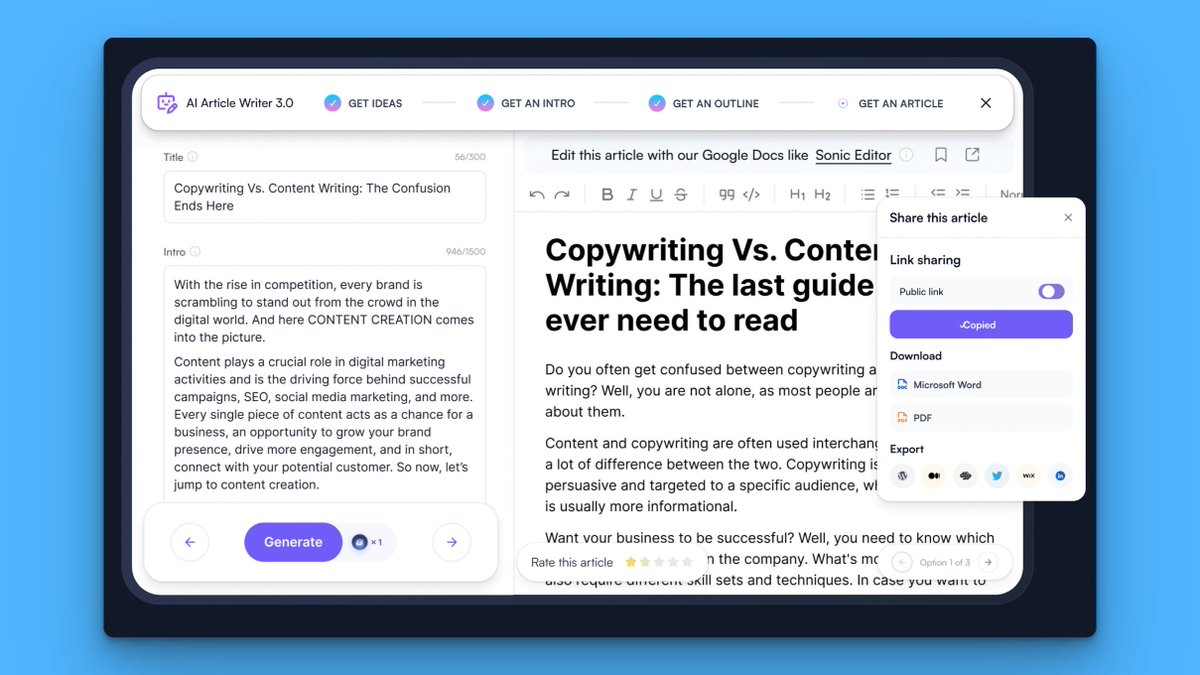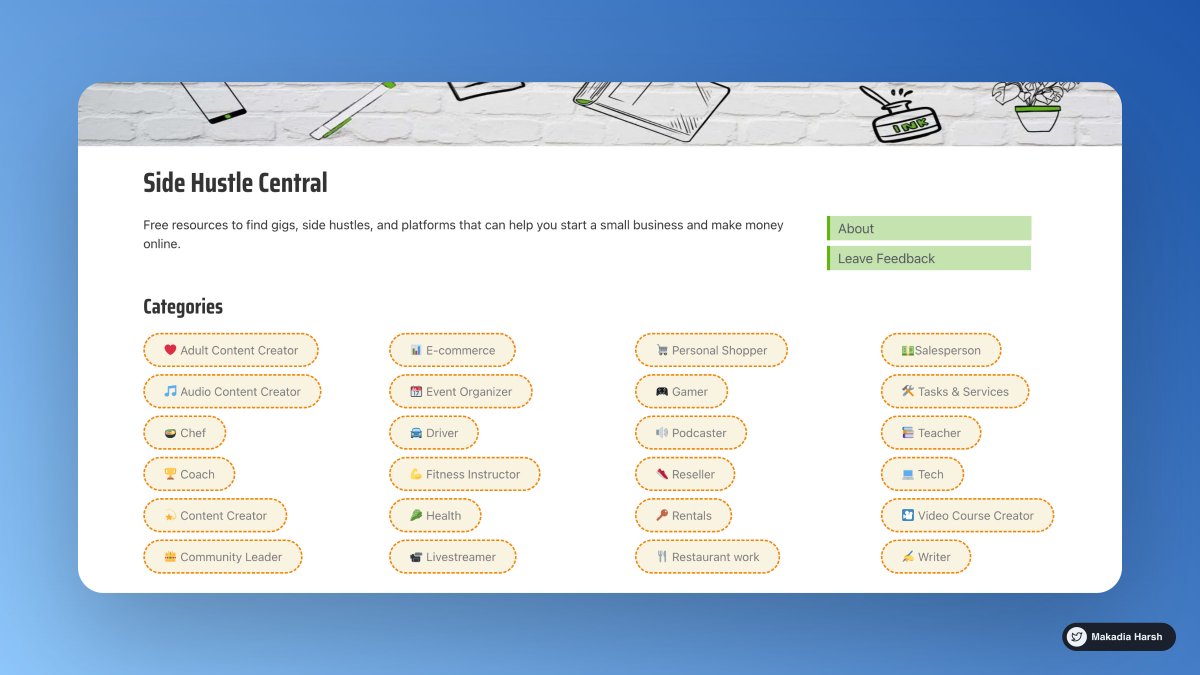1/23: One #startup trap to avoid (founders and VCs) is to fall in love with a value prop that can’t be delivered IRL now. Good diligence will surface disconnects but they’re often brushed under the rug by #VCs who believe fixing delivery over time will be fine. Unpacked:
More from Startup
16 Excellent websites I discovered in 2022 ( that are extremely useful ) :
1. Scribe How
Screen recording extension that instantly converts any process into a guide.
93% less time spent documenting and sharing processes
🔗 https://t.co/dk5fk7zxmz

2. Writesonic
Your writing AI assistant.
The only AI writer in the world that can help you write SEO-optimized, long-form (up to 1500 words) blog posts, and articles in 15 seconds.
Explore Chatsonic - Like ChatGPT but with superpowers.
🔗 https://t.co/j8GX4jn07Q

3. Dotcomkings
Free resources to find gigs, side hustles, and platforms that can help you start a small business and make money online.
🔗 https://t.co/ceKDtabBBE

4. Quillbot
Using cutting-edge AI, QuillBot's paraphrasing tool assists millions of people in rewriting and improving any sentence, paragraph, or article.
🔗 https://t.co/MlKEgJYSvu

1. Scribe How
Screen recording extension that instantly converts any process into a guide.
93% less time spent documenting and sharing processes
🔗 https://t.co/dk5fk7zxmz

2. Writesonic
Your writing AI assistant.
The only AI writer in the world that can help you write SEO-optimized, long-form (up to 1500 words) blog posts, and articles in 15 seconds.
Explore Chatsonic - Like ChatGPT but with superpowers.
🔗 https://t.co/j8GX4jn07Q

3. Dotcomkings
Free resources to find gigs, side hustles, and platforms that can help you start a small business and make money online.
🔗 https://t.co/ceKDtabBBE

4. Quillbot
Using cutting-edge AI, QuillBot's paraphrasing tool assists millions of people in rewriting and improving any sentence, paragraph, or article.
🔗 https://t.co/MlKEgJYSvu

You May Also Like
Recently, the @CNIL issued a decision regarding the GDPR compliance of an unknown French adtech company named "Vectaury". It may seem like small fry, but the decision has potential wide-ranging impacts for Google, the IAB framework, and today's adtech. It's thread time! 👇
It's all in French, but if you're up for it you can read:
• Their blog post (lacks the most interesting details): https://t.co/PHkDcOT1hy
• Their high-level legal decision: https://t.co/hwpiEvjodt
• The full notification: https://t.co/QQB7rfynha
I've read it so you needn't!
Vectaury was collecting geolocation data in order to create profiles (eg. people who often go to this or that type of shop) so as to power ad targeting. They operate through embedded SDKs and ad bidding, making them invisible to users.
The @CNIL notes that profiling based off of geolocation presents particular risks since it reveals people's movements and habits. As risky, the processing requires consent — this will be the heart of their assessment.
Interesting point: they justify the decision in part because of how many people COULD be targeted in this way (rather than how many have — though they note that too). Because it's on a phone, and many have phones, it is considered large-scale processing no matter what.
It's all in French, but if you're up for it you can read:
• Their blog post (lacks the most interesting details): https://t.co/PHkDcOT1hy
• Their high-level legal decision: https://t.co/hwpiEvjodt
• The full notification: https://t.co/QQB7rfynha
I've read it so you needn't!
Vectaury was collecting geolocation data in order to create profiles (eg. people who often go to this or that type of shop) so as to power ad targeting. They operate through embedded SDKs and ad bidding, making them invisible to users.
The @CNIL notes that profiling based off of geolocation presents particular risks since it reveals people's movements and habits. As risky, the processing requires consent — this will be the heart of their assessment.
Interesting point: they justify the decision in part because of how many people COULD be targeted in this way (rather than how many have — though they note that too). Because it's on a phone, and many have phones, it is considered large-scale processing no matter what.















